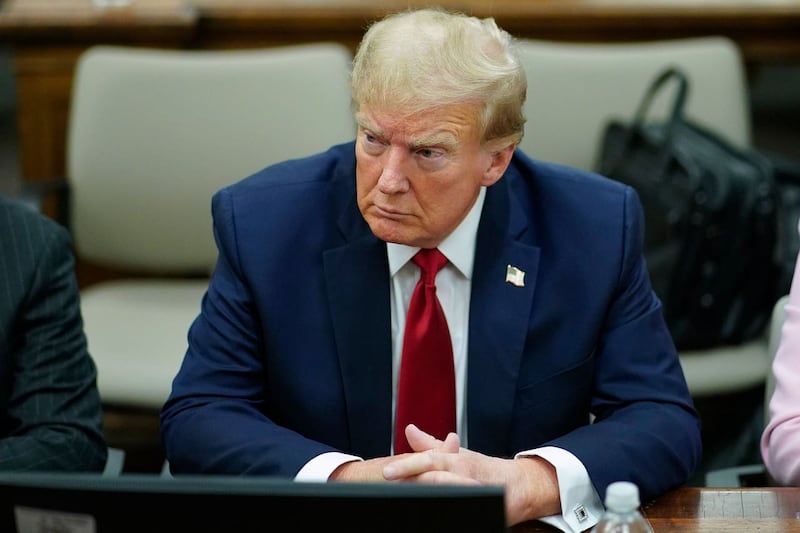Special counsel Jack Smith asked the Supreme Court to rule quickly on whether former President Donald Trump can be prosecuted on charges he plotted to overturn the 2020 election results.
Mr Smith made his request for the court to act with unusual speed to prevent any delays that could push back the trial of the 2024 Republican presidential primary front-runner, currently set to begin March 4, until after next year’s presidential election.
On Monday, the justices indicated they would decide quickly whether to hear the case, ordering Trump’s lawyers to respond by December 20.
The court’s brief order did not signal what it ultimately would do.
A federal judge ruled the case could go forward, but the Republican former president signalled he would ask the federal appeals court in Washington to reverse that outcome.
Mr Smith is attempting to bypass the appeals court, the usual next step in the process, and have the Supreme Court take up the matter directly.

Prosecutors wrote: “This case presents a fundamental question at the heart of our democracy: whether a former president is absolutely immune from federal prosecution for crimes committed while in office or is constitutionally protected from federal prosecution when he has been impeached but not convicted before the criminal proceedings begin.”
Mr Trump’s presidential campaign criticised Mr Smith for trying to go around the appeals court.
“There is absolutely no reason to rush this sham to trial except to injure President Trump and tens of millions of his supporters.
“President Trump will continue to fight for Justice and oppose these authoritarian tactics,” the campaign said in a statement.
The earliest court would consider the appeal would be January 5, the date of the justices’ next scheduled private conference.
Underscoring the urgency for prosecutors in securing a quick resolution that can push the case forward, they added: “It is of imperative public importance that respondent’s claims of immunity be resolved by this Court and that respondent’s trial proceed as promptly as possible if his claim of immunity is rejected.”
At issue is a December 1 ruling from US District Judge Tanya Chutkan that rejected arguments by Mr Trump’s lawyers that he was immune from federal prosecution.
In her order, she wrote that the office of the president “does not confer a lifelong ‘get-out-of-jail-free’ pass”.
“Former presidents enjoy no special conditions on their federal criminal liability,” Ms Chutkan wrote.
“Defendant may be subject to federal investigation, indictment, prosecution, conviction, and punishment for any criminal acts undertaken while in office.”
If the justices get involved, they would have an opportunity to rule for the first time ever on whether former presidents enjoy immunity from prosecution.
Justice Department policy prohibits the indictment of a sitting president.
Though there is no such bar against prosecution for a former commander in chief, lawyers for Mr Trump say that he cannot be charged for actions that fell within his official duties as president — a claim that prosecutors have vigorously rejected.








